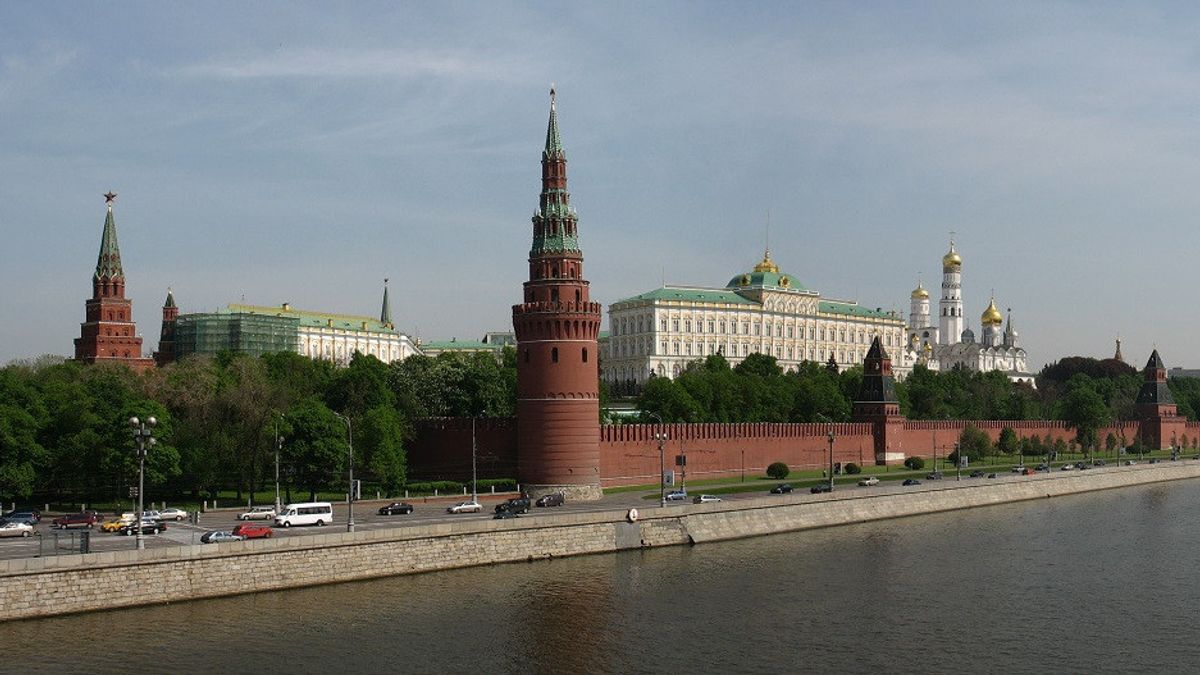JAKARTA - Russia looks set to experience its first nationwide default in decades, as a number of bondholders said they had not yet received interest due on Monday, after the expiration of the main payment deadline the day before.
Russia has struggled to maintain its $40 billion outstanding bond payments since its invasion of Ukraine on February 24, as sweeping sanctions have effectively cut the country off the global financial system, leaving its assets untouched by many investors.
The Kremlin has repeatedly said there is no reason for Russia to default, but cannot send money to bondholders because of sanctions, accusing the West of trying to push it into artificial default.
Russia's efforts to avoid what would be the first major default on international bonds since the Bolshevik revolution more than a century ago hit an insurmountable snag in late May when the US Treasury Department's Office of Foreign Assets Control (OFAC), effectively blocked Moscow. from making payments.
"Since March we thought Russia's default might be inevitable, and the question is when," Dennis Hranitzky, head of sovereign litigation at law firm Quinn Emanuel, told Reuters.
"OFAC has stepped in to answer that question for us, and the standard is now with us."

While a formal default will be largely symbolic, given that Russia cannot borrow internationally at the moment and does not need the blessing, its abundant oil and gas export earnings, the stigma is likely to increase its borrowing costs in the future.
The payment in question is $100 million in interest on two bonds, one denominated in US dollars and one in euros, with Russia scheduled to make payments on May 27, with a 30-day grace period ending on Sunday.
Russia's Finance Ministry said it had made payments to the National Settlement Depository (NSD) in euros and dollars, adding that it had fulfilled its obligations.
Separately, some Taiwanese bondholders had yet to receive payments on Monday, sources told Reuters. For many bondholders, not receiving the money owed on time into their accounts, is a default.
Without an exact deadline specified in the prospectus, lawyers said Russia may have until the end of the next business day to pay bondholders.
It is known that Russian bonds have been issued on a variety of unusual terms, and the level of ambiguity has increased for bonds sold recently, as Moscow has faced sanctions over its annexation of Crimea in 2014 and poisoning incidents in Britain in 2018.
Rodrigo Olivares-Caminal, chair of banking and finance law at Queen Mary University in London said clarity was needed about what constitutes an exemption for Russia from its obligations, or the difference between receiving and recovering payments.
"All of these matters are subject to interpretation by the courts, but Russia has not relinquished its sovereign immunity and has not submitted to the jurisdiction of any court in either of the two prospectuses," Olivares-Caminal told Reuters.
In some ways, Russia is already by default. A derivatives committee has ruled that 'credit events' have occurred in some of its securities, triggering payments on some of Russia's credit default swaps, instruments used by investors to ensure debt exposure to default.
This was triggered by Russia failing to make payments of 1.9 million US dollars in accrued interest on payments that were due in early April.
Until the invasion of Ukraine, sovereign default seemed unthinkable, with Russia judged to be investment-worthy until shortly before that point. Defaults are also unusual, as Moscow has the funds to pay its debts.
OFAC had issued a temporary waiver, known as a general license 9A, in early March to allow Moscow to keep paying investors. That let it expire on May 25, when Washington tightened sanctions on Russia, effectively cutting payments to US investors and entities.
Expiring OFAC licenses are not the only obstacle Russia faces, as in early June the European Union imposed sanctions on NSD, Russia's designated agent for its Eurobonds.
It is known that Moscow has scrambled in recent days to find a way to handle impending payments and avoid defaults. President Vladimir Putin signed a decree last Wednesday to launch an interim procedure, giving the government 10 days to choose a bank to handle payments under the new scheme, suggesting Russia will consider meeting debt obligations when paying bondholders in rubles.
The English, Chinese, Japanese, Arabic, and French versions are automatically generated by the AI. So there may still be inaccuracies in translating, please always see Indonesian as our main language. (system supported by DigitalSiber.id)













